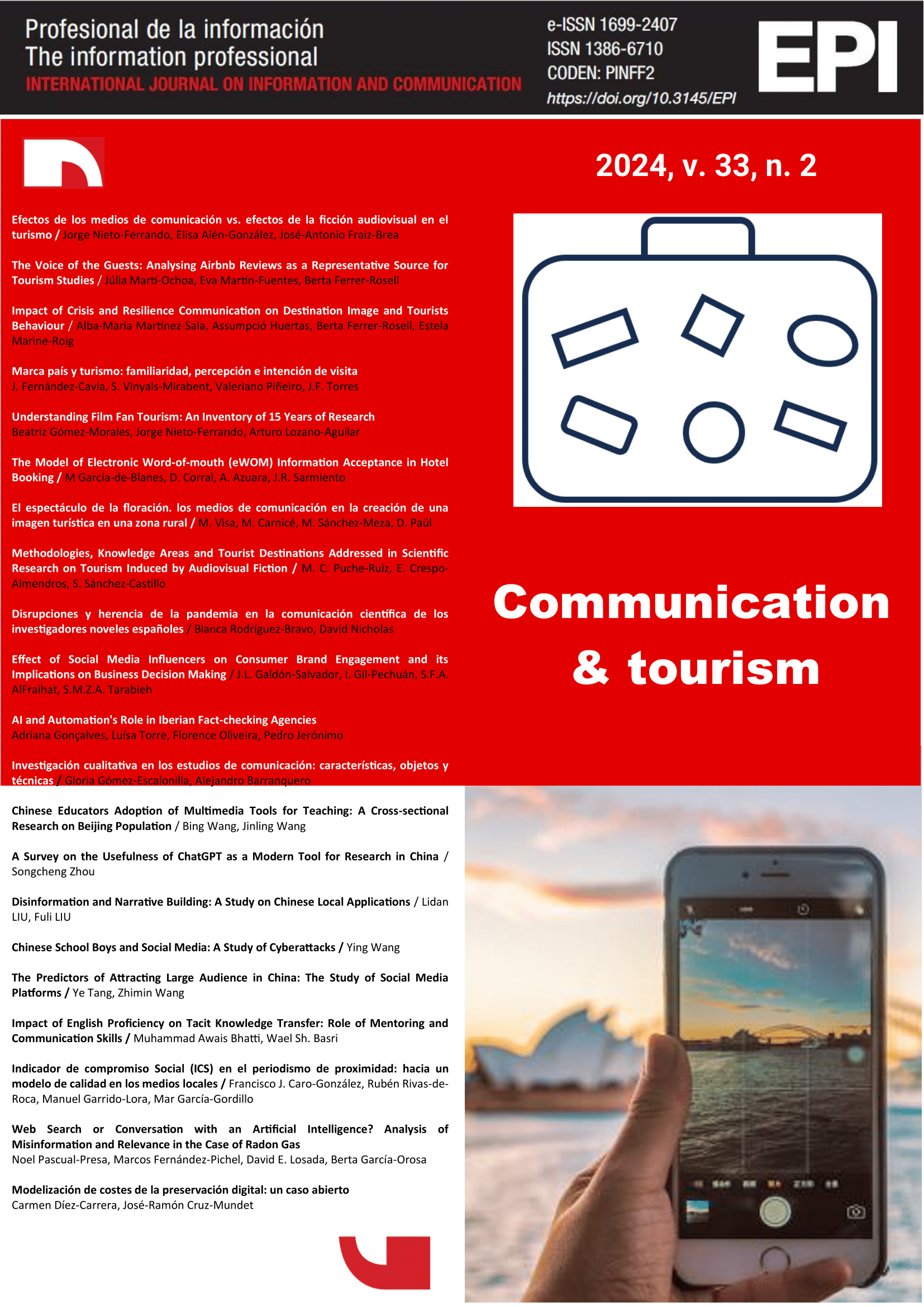Methodologies, Knowledge Areas and Tourist Destinations Addressed in Scientific Research on Tourism Induced by Audiovisual Fiction (1988-2021)
DOI:
https://doi.org/10.3145/epi.2024.0208Resumen
This article analyses the methodological evolution experienced in academic research on the phenomenon of tourism induced first by the cinema and later by the audiovisual media in general during the period 1988-2021. Emphasis is placed on the methodological techniques employed and the tourist destinations considered from the perspective of marketing, communication and tourism studies. By means of a systematised analysis, 354 articles from the Scopus, WOS and Journal Citation Report databases were reviewed. The results suggest the existence of two main lines of analysis: conceptual theory (cultural geography and communication) and empirical analysis (analysis of specific products by marketing experts). Descriptive and quantitative analyses were found to be in the majority as opposed to causal and qualitative analyses. The predominance of researchers from the Anglo-Saxon and Asian spheres, who study the phenomenon of film-induced tourism within their borders, has been discovered.
Descargas
Downloads
Publicado
Número
Sección
License
Copyright (c) 2024 Profesional de la información

This work is licensed under a Creative Commons Attribution 4.0 International License.
Condiciones de difusión de los artículos una vez son publicados
Los autores pueden publicitar libremente sus artículos en webs, redes sociales y repositorios
Deberán respetarse sin embargo, las siguientes condiciones:
- Solo deberá hacerse pública la versión editorial. Rogamos que no se publiquen preprints, postprints o pruebas de imprenta.
- Junto con esa copia ha de incluirse una mención específica de la publicación en la que ha aparecido el texto, añadiendo además un enlace clicable a la URL: http://revista.profesionaldelainformacion.com
La revista Profesional de la información ofrece los artículos en acceso abierto con una licencia Creative Commons BY.





